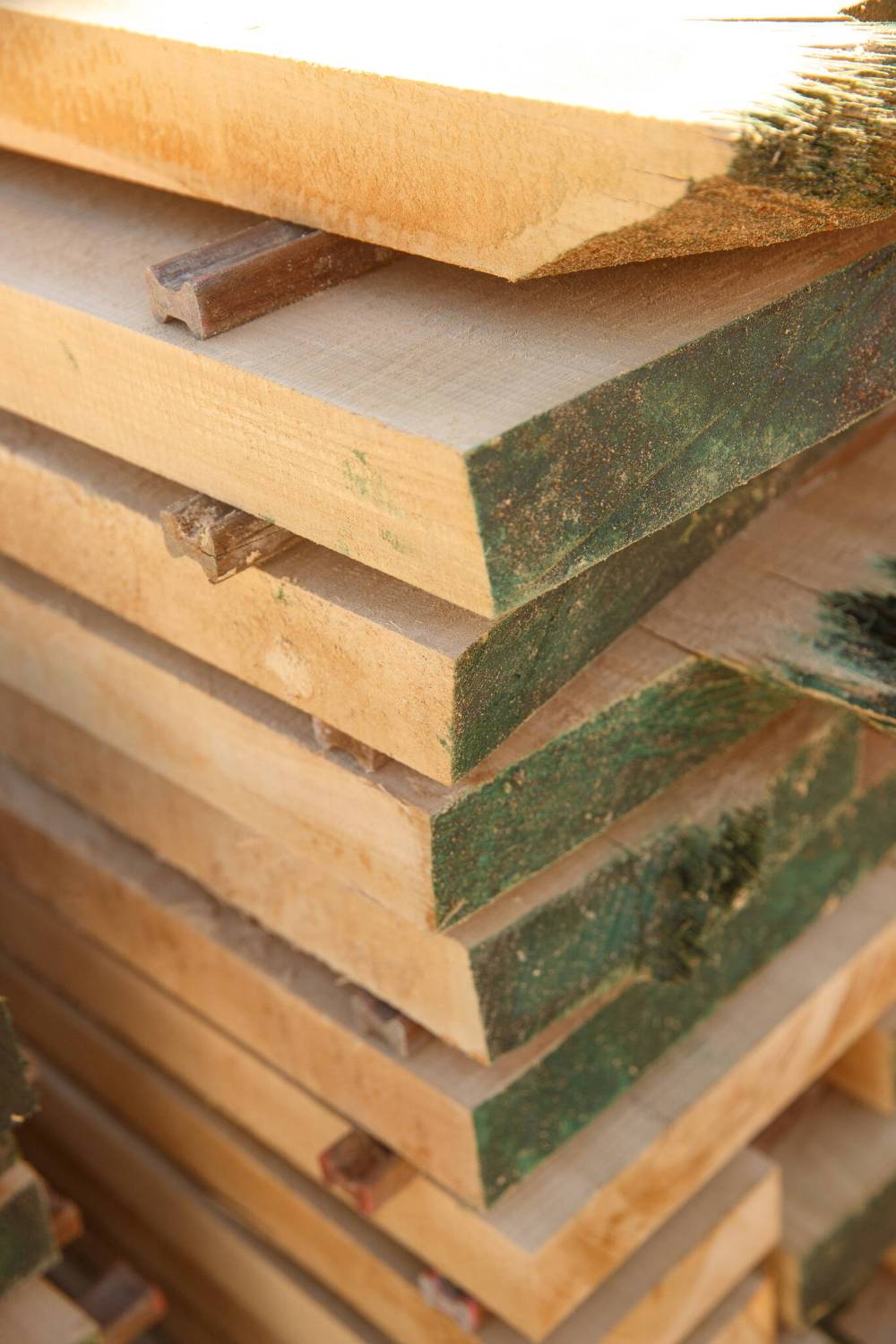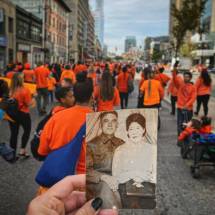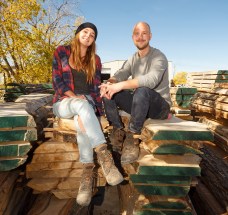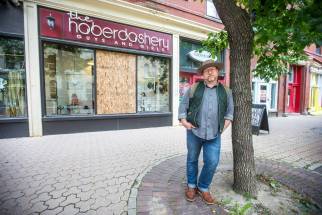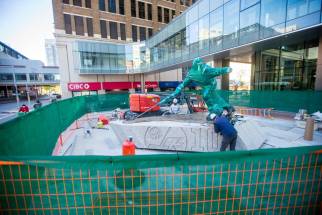If a tree falls in the urban forest… Couple carves out a niche by diverting Winnipeg’s diseased growth away from the landfill, turning it into usable kiln-dried wood
Read this article for free:
or
Already have an account? Log in here »
To continue reading, please subscribe:
Monthly Digital Subscription
$0 for the first 4 weeks*
- Enjoy unlimited reading on winnipegfreepress.com
- Read the E-Edition, our digital replica newspaper
- Access News Break, our award-winning app
- Play interactive puzzles
*No charge for 4 weeks then price increases to the regular rate of $19.00 plus GST every four weeks. Offer available to new and qualified returning subscribers only. Cancel any time.
Monthly Digital Subscription
$4.75/week*
- Enjoy unlimited reading on winnipegfreepress.com
- Read the E-Edition, our digital replica newspaper
- Access News Break, our award-winning app
- Play interactive puzzles
*Billed as $19 plus GST every four weeks. Cancel any time.
To continue reading, please subscribe:
Add Free Press access to your Brandon Sun subscription for only an additional
$1 for the first 4 weeks*
*Your next subscription payment will increase by $1.00 and you will be charged $16.99 plus GST for four weeks. After four weeks, your payment will increase to $23.99 plus GST every four weeks.
Read unlimited articles for free today:
or
Already have an account? Log in here »
Hey there, time traveller!
This article was published 30/09/2022 (1165 days ago), so information in it may no longer be current.
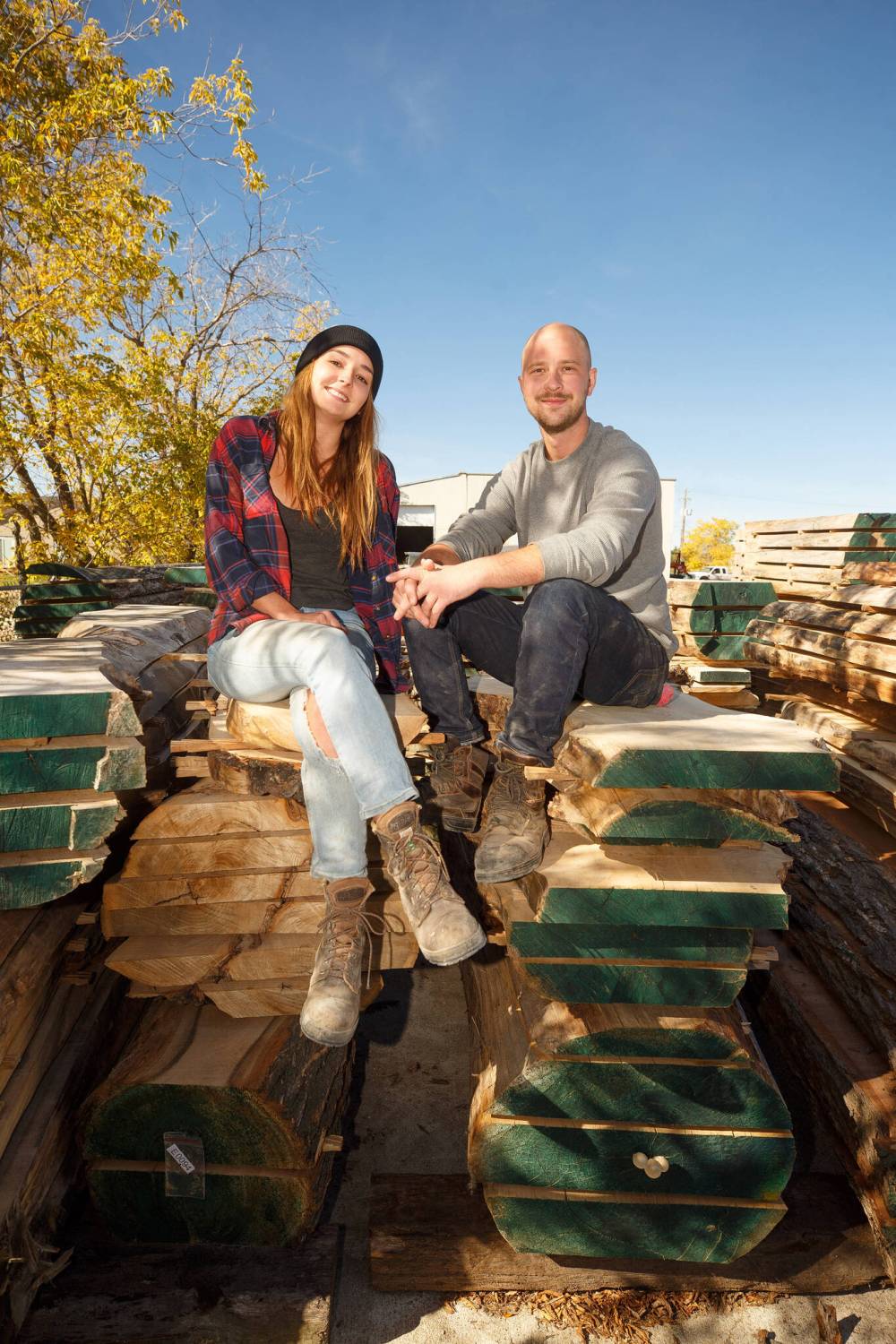
Mike McGarry was having what he describes as one of the best days of his life.
It was July 2018, the then 26-year-old, together with his girlfriend Carlee Farmer, was working as a forest technician in Campbell River, B.C., and was seated in a helicopter, flying over a cedar forest that stretched as far as his eyes could see. It was a summer gig, both of them were due back at the University of Winnipeg in the fall to complete their degrees in Environmental Studies, but as he stared out the chopper’s windows, looking for areas that needed attention, he couldn’t help but think how amazing it would be, to be treated to that view every morning.
At the same time, something was gnawing away at him.
Back home, the city’s trees were succumbing to disease at an alarming rate. That was bothersome enough to a person majoring in forestry, except what also troubled McGarry, who grew up in River Heights, was the fact almost all of those felled timbers were destined for landfills. Given maladies such as Dutch elm disease affect only the bark of a tree, not the wood itself, he felt that was a tremendous waste of a valuable resource.
“So yeah, our original plan was that we would return to B.C. to work full time, the moment we graduated,” says Farmer who, like McGarry, fell in love with Winnipeg’s tree canopy as a child, when her parents routinely took her for strolls in the neighbourhood, in their case, Fort Rouge. “That was until Mike came up with his ‘crackpot’ idea of saving the trees of Winnipeg.”
“If you’d arrived about an hour earlier, you would’ve been here for our latest delivery, a couple of American elms from, here, let me check… the east side of the city,” McGarry says, seated inside the main office of Urban Lumber, a newly minted lumber mill at 1289 Loudon Rd., wholly dedicated to converting wood from dead or dying urban trees into environmentally friendly products.
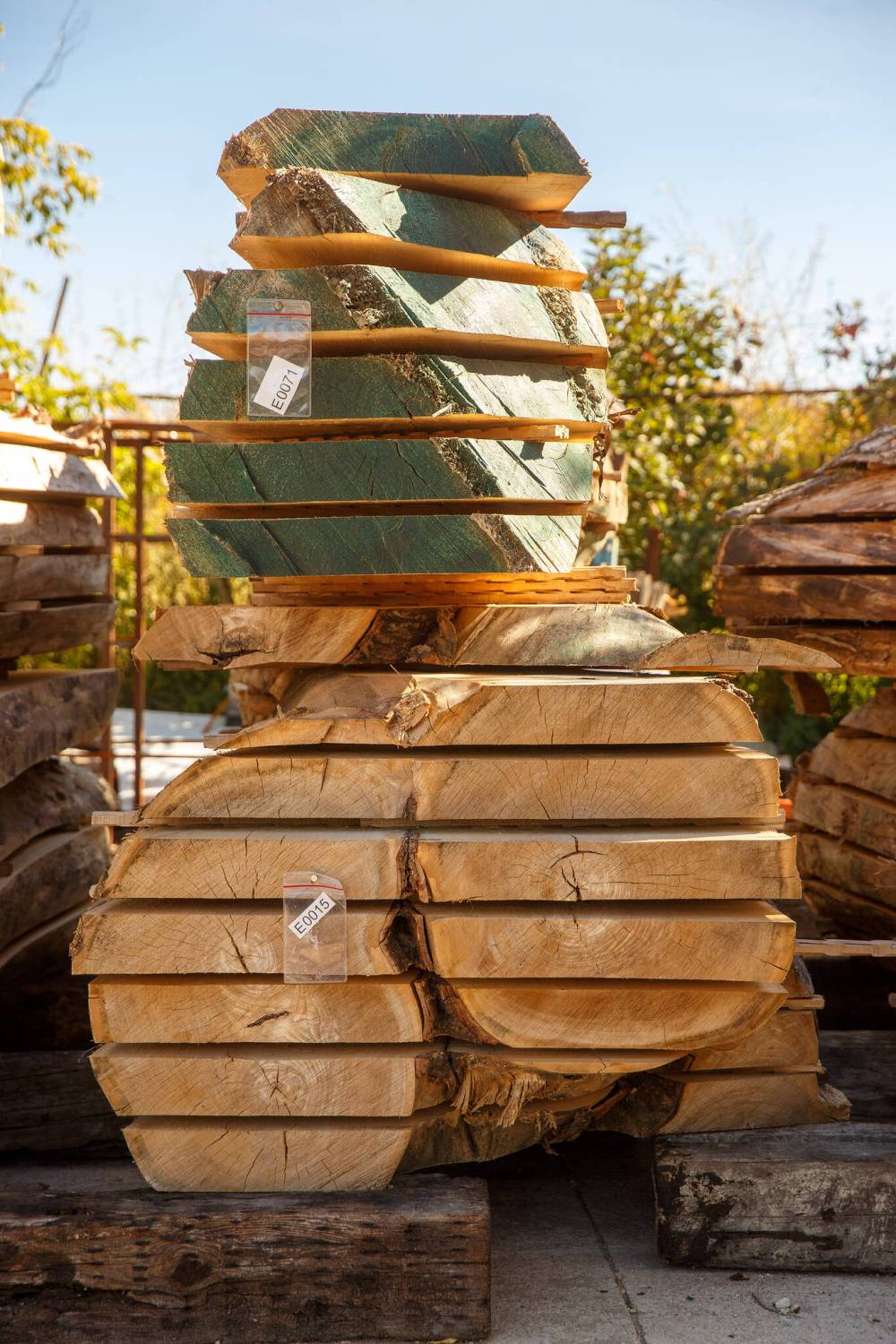
While Urban Lumber officially opened for business in May, the seed for the one-acre operation was planted not long after that fateful helicopter ride over Vancouver Island. Even while he was completing his studies at the U of W, where he and Farmer met, McGarry was piecing together a plan. Never mind that he had never operated an industrial sawmill before — foresters manage and protect trees, he points out, they don’t chop them down the way arborists do — he’d figure all that out, later.
First, he needed to work with the City of Winnipeg to get the wording in a document pertaining to tree disposal changed from “must be dumped at a city-regulated facility,” by adding the caveat “…or another approved facility.” That took some persistence but once it was approved — and once they received permission from the provincial government to store logs onsite — he and Farmer founded what was intended to be a four-month, pilot project to determine whether their business plan was viable or not. It was. Windsor Plywood was an early customer, which caused them to take things a step further by opening WPG Timber Co. in the Fort Garry Industrial Park, in the summer of 2019.
Creative differences with a financial partner led to the two of them divorcing themselves from things a number of months later, a move that left McGarry distraught. After all, he had poured his “blood, sweat and tears” into the project for the better part of a year, he says. To soothe their spirits, he and Farmer moved to a cottage overlooking Clearwater Lake, near The Pas. There they worked as forestry technicians, with part of their job being to pass their knowledge along to First Nations youths from the area.
Aside from the bugs — “horrendous; you can’t describe it,” Farmer says of conditions in the swampier areas — it was an idyllic lifestyle.
Jesse Marr (from left), Zach Rogers, Mike McGarry, Carlee Farmer and Doug Cook. 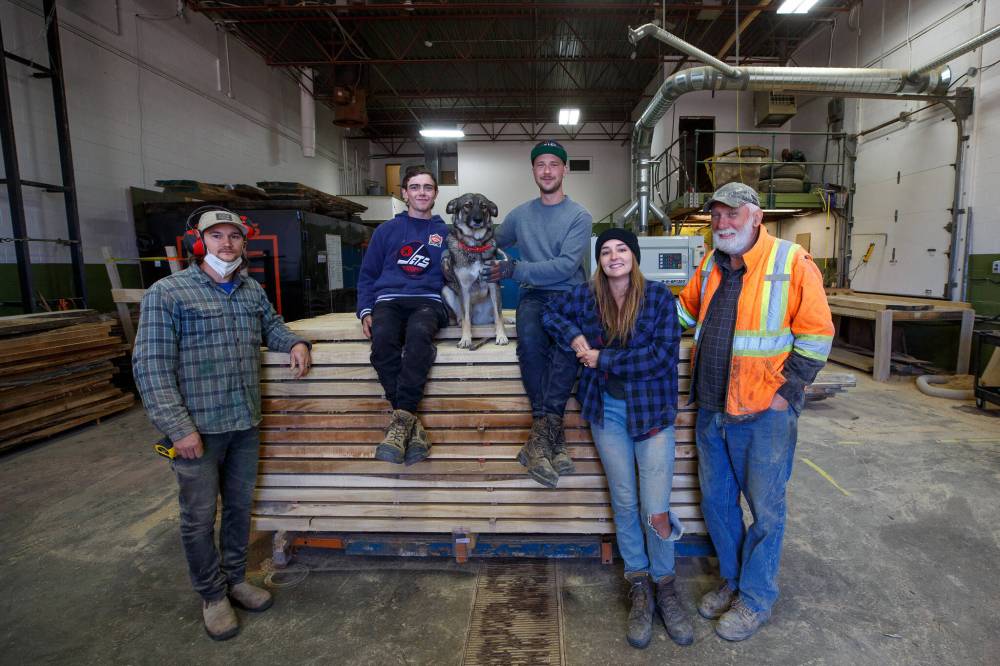
“Except my dream never went away, I couldn’t leave it alone,” McGarry states matter-of-factly, rolling up a sleeve to show off a forearm tattoo of his favourite tree, a white pine.
In December 2019 McGarry and Farmer were introduced to Doug Cook, the 72-year-old owner of a highly successful, local mudjacking company. The couple shared their vision with him, and he said it sounded feasible. Would they be interested in his services, as both a financier and business mentor, he asked? You bet, they told him.
Here’s the way things work. Contracted arborists are instructed by the city what trees are in need of attention. McGarry and Farmer reach out to those same firms, to let them know they’re more than happy to save them the cost of tipping fees, about $65 per tonne, by taking the trees off their hands.
“So no, we don’t pay for the wood,” McGarry explains. “At the same time, there’s only so much of it that we can use, because city trees differ from ones in natural forests, in that they start to fork out at about eight or 10 feet versus 30 or 40.”
“We only take the section of the tree before it starts to spread out,” Farmer chimes in. “Unfortunately, we aren’t able to do anything with the branches and stuff.”
Once wood is cut to appropriate lengths and kiln-dried, it can be used to create furniture, cabinetry… even charcuterie boards. They mainly handle hardwood, which isn’t suitable for something like fence boards, McGarry notes, but they have been approached by everybody from independent toy manufacturers to yoga instructors, the latter of whom are interested in utilizing their eco-friendly wares to create heavy-duty fitness blocks.
A retail component is in the works. Better still if you grew up in, say, West Kildonan or St. Boniface and would love to own a live-edge coffee table from your neck of the woods; that’s entirely doable.
“We track where all of the trees we receive come from, so if you’re looking for a piece of your childhood, per se, for the deck or cottage, we can help you out,” Farmer says, adding that if you think piecing together a TV stand from Ikea is tough on a relationship, try constructing a 6,000-volt industrial sawmill together. (Good news! They are still due to tie the knot, next summer.)
As foresters, they wish they weren’t doing what they’re doing, and that the city’s trees would line boulevards ad infinitum. At the same time, they are realists, and understand that everything has a life cycle.
Farmer cuts one of the elm trunks. 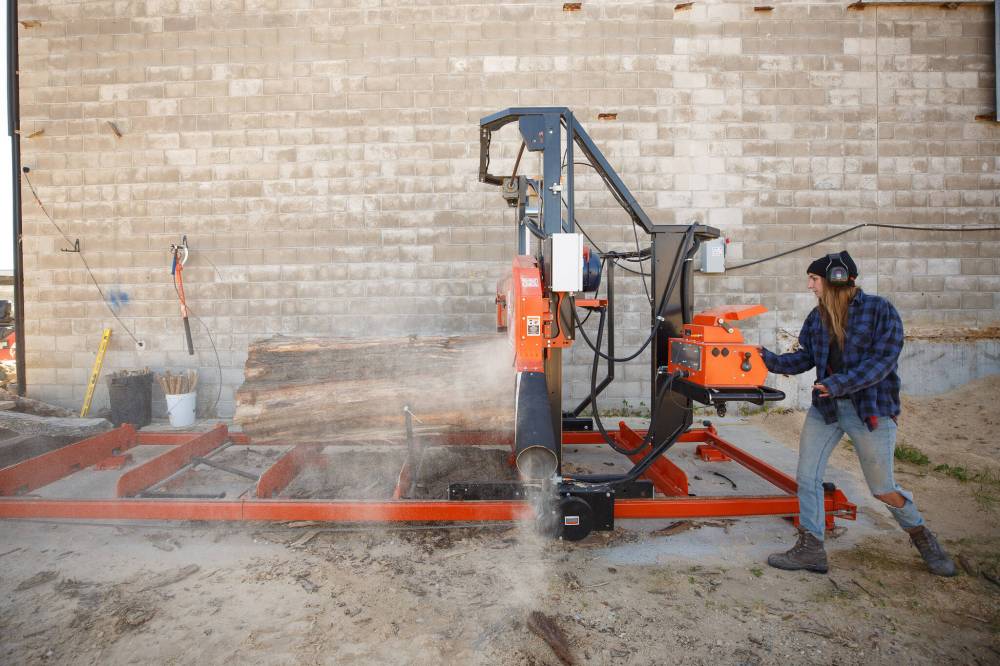
“It’s heartbreaking to see these big, neighbourhood trees come down, but it’s our mission to try to make the best out of bad situation,” McGarry says, nodding his head when Farmer asserts “it’s the old making lemonade out of lemons” scenario.
A piece of advice, though; if you ever affix a garage sale or missing cat sign to a tree on your block, please use tape, they recommend.
“The one thing we didn’t count on when we started all this was how many nails we’d run across from old signs,” McGarry says, bending over to pet the company pooch. “The first time it happened we were like, ‘What the …?’ but now we anticipate it, almost.”
david.sanderson@freepress.mb.ca
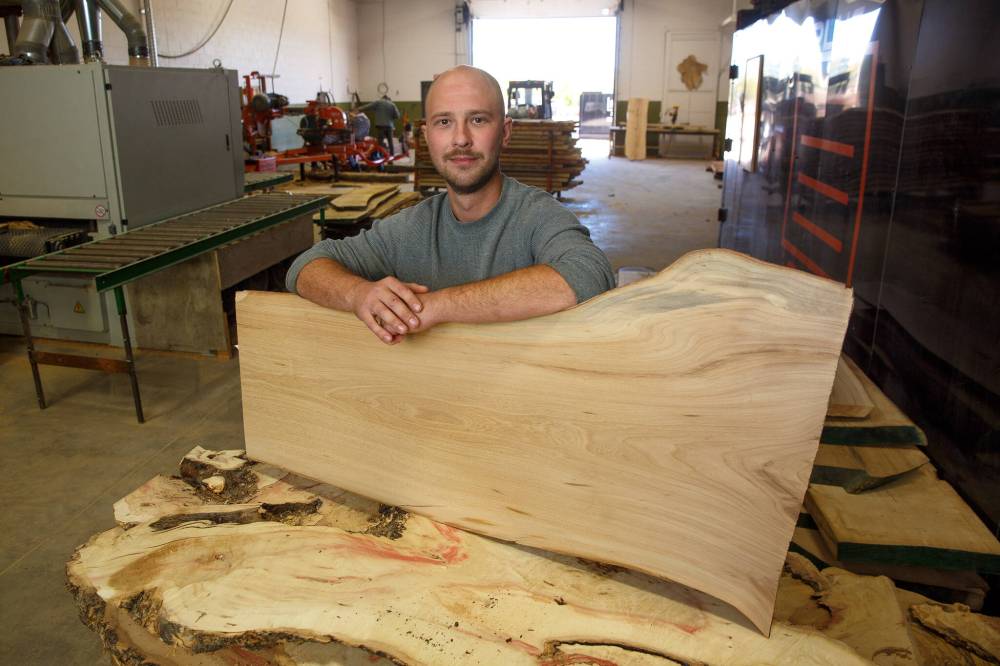

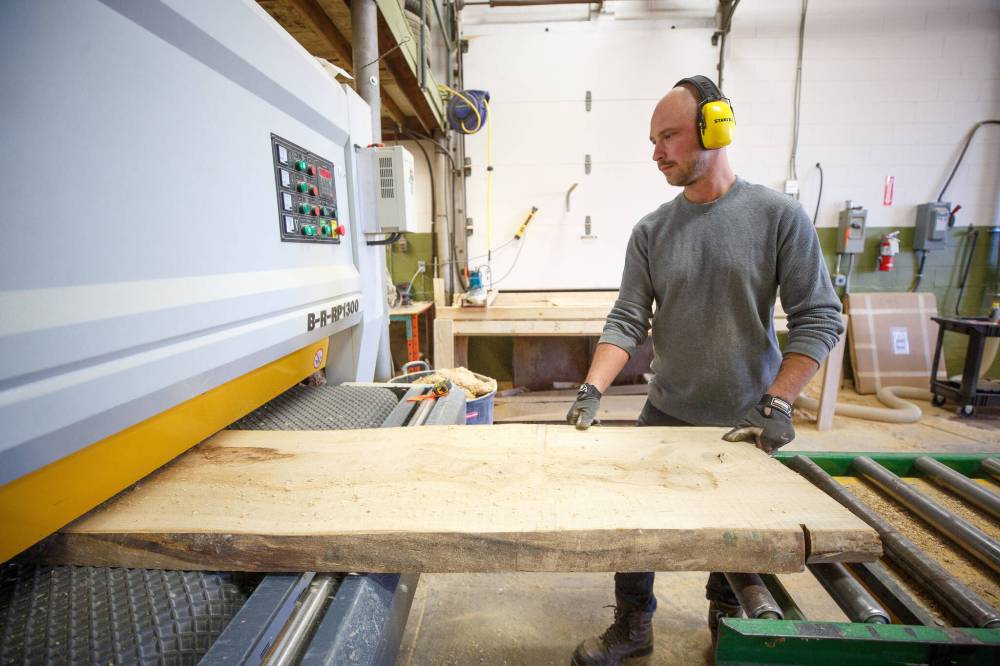
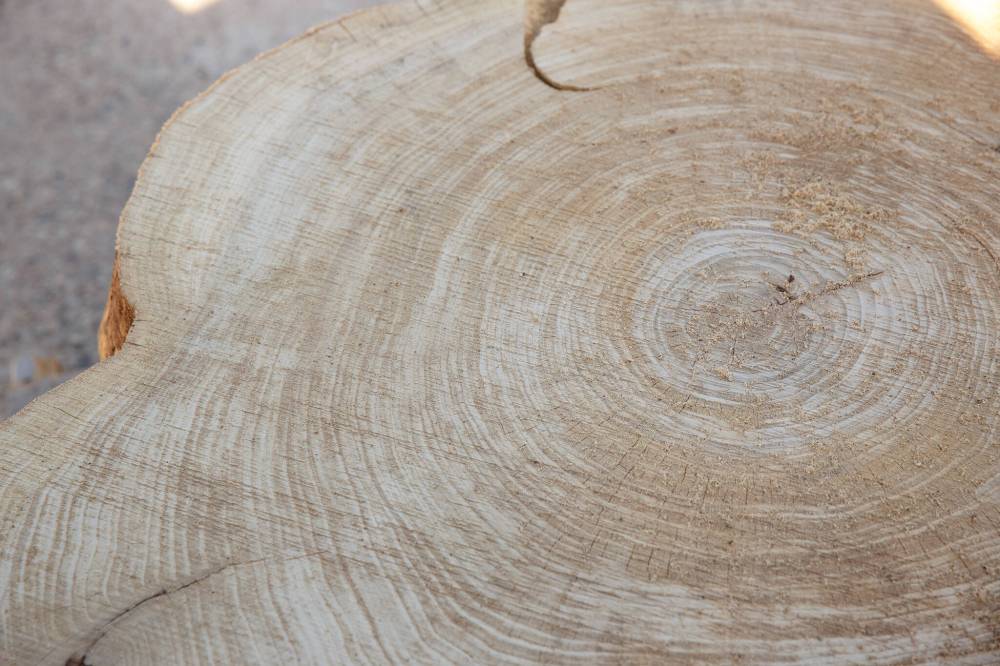
A tree trunk cut into a large disc that could be used as table top.
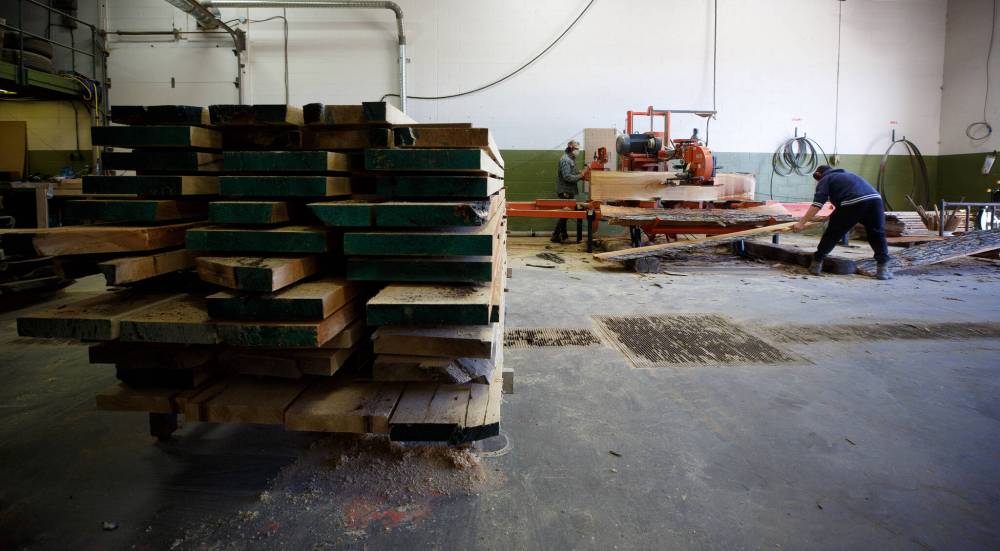
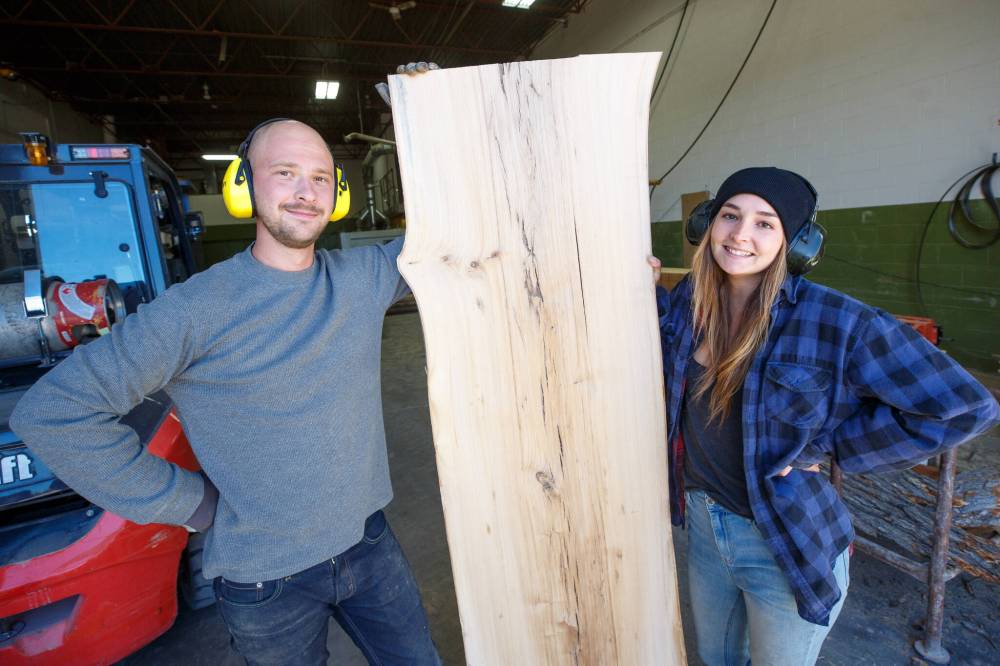
Dave Sanderson was born in Regina but please, don’t hold that against him.

Mike Deal started freelancing for the Winnipeg Free Press in 1997. Three years later, he landed a part-time job as a night photo desk editor.
Our newsroom depends on a growing audience of readers to power our journalism. If you are not a paid reader, please consider becoming a subscriber.
Our newsroom depends on its audience of readers to power our journalism. Thank you for your support.

